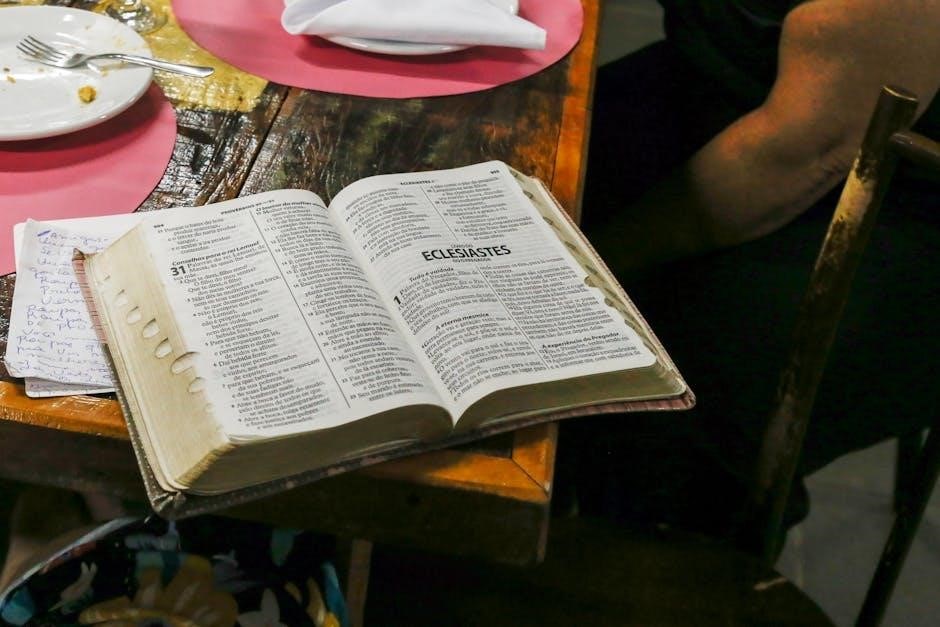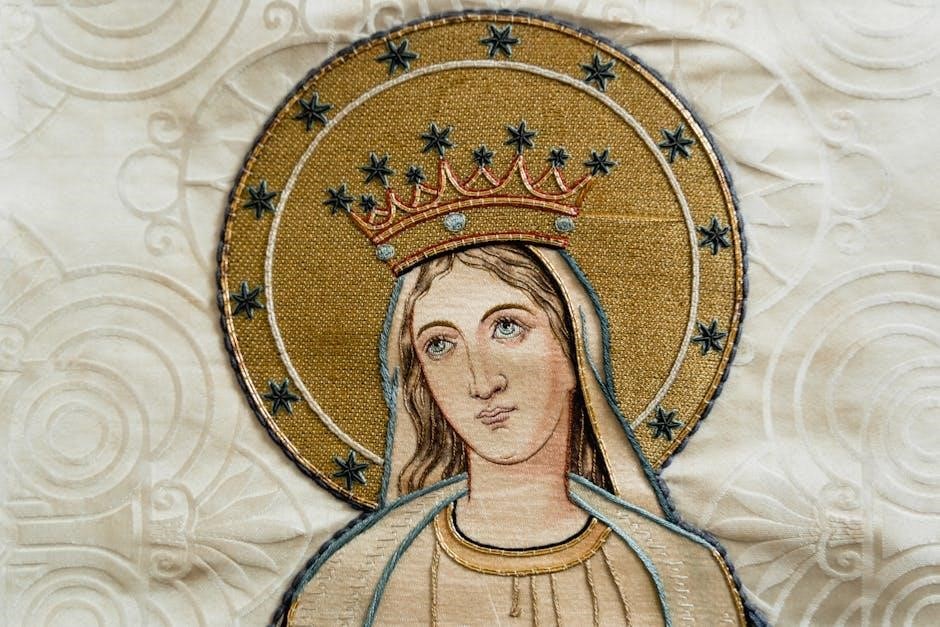Welcome to the Orbit Easy Dial Manual‚ your comprehensive guide to understanding and operating the Orbit Easy Dial Timer. This manual provides detailed instructions for setup‚ programming‚ and troubleshooting‚ ensuring optimal use of your timer’s features‚ including its intuitive dial controls and advanced scheduling options.
Overview of the Orbit Easy Dial Timer
The Orbit Easy Dial Timer is a user-friendly irrigation controller designed for efficient watering management. It features an intuitive dial-based interface with Easy-Set Logic‚ simplifying programming and setup. The timer offers adjustable speed control‚ allowing users to set orbits per minute (OPM) for precise watering. With multiple station support‚ it caters to various lawn and garden needs. Its compact design makes it suitable for both indoor and outdoor use‚ and it can be housed in an optional weather-resistant enclosure. The timer supports manual‚ semi-automatic‚ and automatic modes‚ providing flexibility for different watering preferences; Its compatibility with 24VAC sprinkler systems ensures reliable operation. The Orbit Easy Dial Timer is an ideal solution for homeowners seeking a balance between simplicity and advanced functionality for their irrigation needs.
Importance of the Manual for Users
This manual is essential for users to maximize the Orbit Easy Dial Timer’s functionality. It provides step-by-step instructions for installation‚ programming‚ and troubleshooting‚ ensuring users can operate the timer effectively. The manual details how to utilize features like the speed control dial‚ orbits per minute (OPM) adjustment‚ and Easy-Set Logic programming. It also covers maintenance tips and solutions for common issues‚ helping users maintain optimal performance. By following the manual‚ users can avoid setup errors‚ customize watering schedules‚ and ensure their irrigation system runs efficiently. This guide is particularly useful for new users‚ offering clarity on advanced features and simplifying the learning curve for seamless operation.

Key Features of the Orbit Easy Dial
The Orbit Easy Dial Timer stands out for its user-friendly design and advanced functionality. It features a speed control dial that allows users to adjust the timer’s speed from 800 to 1200 orbits per minute‚ providing precise control over watering cycles. The timer also includes Orbi’s exclusive Easy-Set Logic programming‚ which simplifies the setup process by guiding users through scheduling with ease. Additionally‚ the timer supports multiple operating modes‚ including manual‚ semi-automatic‚ and automatic‚ catering to various user preferences. Its compatibility with both indoor and outdoor setups‚ along with optional enclosure protection‚ ensures versatility and durability. These features make the Orbit Easy Dial Timer a versatile and efficient solution for irrigation management‚ suitable for both residential and small-scale commercial applications.

Understanding the Orbit Easy Dial Interface

The Orbit Easy Dial interface is intuitive and user-friendly‚ featuring a central dial for adjusting orbits per minute‚ navigation buttons‚ and an LCD display for clear operation and scheduling management.
Components of the Orbit Easy Dial
The Orbit Easy Dial consists of a central control dial‚ navigation buttons‚ and an LCD display. The dial allows for easy adjustment of orbits per minute (OPM)‚ from 800 to 1200‚ ensuring precise control over watering cycles. The interface also includes buttons for setting schedules‚ manual operation‚ and clearing existing programs. Additionally‚ the timer features a clock and date display‚ enabling users to set specific watering times. These components work together to provide a seamless and efficient watering system‚ making it easy to manage irrigation schedules for various zones. The design emphasizes simplicity and functionality‚ ensuring that users can operate the timer without extensive technical knowledge;
Speed Control Dial Functionality
The speed control dial on the Orbit Easy Dial allows users to adjust the orbits per minute (OPM) from 800 to 1200. Turning the dial changes the watering speed‚ enabling precise control over irrigation cycles. This feature ensures that different watering needs can be accommodated efficiently. The dial’s functionality is straightforward‚ requiring only a simple rotation to increase or decrease the speed. Its design provides tactile feedback‚ making it easy to set the desired OPM without complicated menus. This feature is particularly useful for optimizing water usage‚ ensuring that plants receive the right amount of moisture based on specific requirements. The speed control dial enhances the timer’s flexibility‚ making it adaptable to various irrigation scenarios and user preferences. This ensures efficient and effective watering management for different landscapes and conditions.
Orbits Per Minute (OPM) Adjustment
Orbits Per Minute (OPM) adjustment on the Orbit Easy Dial allows users to fine-tune the watering cycle’s speed. By turning the speed control dial‚ you can set the OPM between 800 and 1200‚ providing precise control over water distribution. This feature ensures that irrigation cycles match specific landscape needs‚ optimizing water usage. The OPM adjustment is crucial for balancing thorough watering and water conservation. A higher OPM setting delivers quicker irrigation‚ while a lower setting offers more gradual watering. This customization capability makes the Orbit Easy Dial versatile for various watering requirements. Proper adjustment of OPM ensures efficient irrigation‚ preventing under-watering or over-watering. This feature is essential for maintaining healthy plants and conserving water resources effectively. The OPM adjustment enhances the timer’s adaptability to different watering scenarios.

Installation and Setup Guide
The Orbit Easy Dial Manual provides a comprehensive installation guide‚ including step-by-step instructions for connecting the timer to your system and ensuring proper setup for smooth operation.
Pre-Installation Requirements

Before installing the Orbit Easy Dial Timer‚ ensure the location is dry and sheltered‚ or use an Orbit outdoor enclosure for protection. The timer is designed for indoor use but can be adapted for outdoor setups with proper housing; Verify that your system is compatible with the timer’s specifications‚ such as 24 VAC operation. Gather necessary tools like screwdrivers and ensure the main water supply is turned off before starting the installation process. Additionally‚ review the manual to familiarize yourself with the components and connections to avoid any issues during setup.
Check the irrigation lines for leaks or damage and ensure all valves are in good working condition. This preparation will ensure a smooth and efficient installation process for your Orbit Easy Dial Timer.
Step-by-Step Installation Process
Begin by mounting the Orbit Easy Dial Timer on a flat surface‚ ensuring it is level and secure. Connect the timer to your irrigation system by attaching the appropriate wires to the corresponding zones. Make sure all connections are tight and properly insulated to prevent water damage. Next‚ plug in the timer and turn on the power. Test each zone to ensure proper functionality. If using an outdoor enclosure‚ install it according to the manufacturer’s instructions to protect the timer from environmental elements. Finally‚ set the clock and date‚ and program your watering schedule using the intuitive dial controls. Refer to the manual for detailed wiring diagrams and specific instructions tailored to your system.
Connecting the Timer to Your System
Connecting the Orbit Easy Dial Timer to your irrigation system is straightforward. Start by turning off the power supply to the system. Locate the timer’s terminal ports and match them to your system’s wiring. Securely attach the common wire to the “C” terminal and connect each zone wire to its corresponding terminal (Z1‚ Z2‚ etc.). Ensure all connections are tight to prevent any electrical issues. If using a master valve‚ connect it to the designated terminal. Once all wires are connected‚ turn the power back on and test each zone to confirm proper operation. Refer to the manual for wiring diagrams and specific instructions to ensure a safe and correct setup. Proper connections are essential for reliable performance of your watering system.

Programming the Orbit Easy Dial Timer
Programming the Orbit Easy Dial Timer is simple with its intuitive interface. Set the clock and date‚ then create custom watering schedules using the Easy-Set Logic feature. Adjust watering intervals and enable automatic or manual modes based on your needs. The timer’s dial and buttons allow quick adjustments‚ ensuring efficient water management for your system. Follow the on-screen prompts or refer to the manual for detailed guidance on setting up and customizing your watering programs. This feature ensures your irrigation system operates precisely‚ saving time and water. Use the manual to explore advanced programming options for optimal results.
Setting the Clock and Date
Setting the clock and date on your Orbit Easy Dial Timer is essential for accurate scheduling. Begin by turning the dial to the “SET CLOCK” position. Use the / buttons to navigate through the options and set the current date in MM/DD/YYYY format. Once the date is set‚ proceed to adjust the time using the same buttons. After entering the correct time‚ ensure all settings are saved to maintain your programmed schedules. Properly setting the clock and date guarantees that your irrigation system operates according to your specified timetable‚ optimizing water usage and ensuring your lawn or garden receives the right amount of water at the right time. This step is crucial for the timer to function correctly and efficiently.
Creating Watering Schedules
Creating a watering schedule with the Orbit Easy Dial Timer is straightforward using its intuitive interface. Start by turning the dial to the “PROGRAM” position. Use the / buttons to select the desired start time‚ water duration‚ and frequency (daily‚ every 2 days‚ etc.). For multiple zones‚ repeat the process for each station. The timer’s Easy-Set Logic simplifies programming by guiding you through each step. You can also customize schedules for different days of the week or specific intervals. Once programmed‚ the timer will automatically water according to your settings. This feature ensures consistent watering patterns‚ promoting healthy plant growth while conserving water. Proper scheduling prevents overwatering and aligns with local watering restrictions‚ making it an efficient solution for lawn care. Always review your schedule to ensure it meets your landscape’s needs.
Using the Easy-Set Logic Programming
The Orbit Easy Dial Timer’s Easy-Set Logic Programming simplifies the process of creating watering schedules. Start by turning the dial to the “SET CLOCK” position and press the ENTER button. Use the / buttons to set the current time and date. Next‚ select the “PROGRAM” position to input your watering preferences. Choose the desired start time‚ water duration‚ and frequency (daily‚ every 2 days‚ or specific days of the week); The timer’s intuitive logic automatically calculates the schedule‚ ensuring even spacing of watering cycles. This feature eliminates the need for complex programming‚ making it easy to customize your irrigation system. With Easy-Set Logic‚ you can quickly set up a schedule that meets your lawn’s needs‚ saving time and reducing water waste. This innovative tool ensures efficient and consistent watering patterns.

Operating Modes of the Orbit Easy Dial
The Orbit Easy Dial Timer offers three convenient operating modes: Manual for one-time watering‚ Semi-Automatic for repeating intervals‚ and Automatic for fully scheduled programs‚ providing flexibility and control over your watering schedule.
Manual Mode Operation
Manual Mode allows for immediate‚ one-time watering without scheduling. Simply turn the dial to the “Manual” position‚ and the timer will activate the valve‚ watering your lawn instantly. This mode is ideal for quick adjustments or additional watering outside of programmed schedules. It provides flexibility and convenience‚ enabling you to address specific watering needs without altering your preset automatic cycles. The manual operation ensures that you can water your plants or lawn as needed‚ regardless of the programmed timing‚ making it a useful feature for unexpected watering requirements or for testing the system after installation or maintenance.
Semi-Automatic Mode Functionality

The Semi-Automatic Mode on the Orbit Easy Dial Timer allows you to run a watering cycle manually without altering your programmed schedule. To activate this mode‚ simply turn the dial to the “Semi-Auto” position and press the “Manual” button. This mode is ideal for occasional‚ one-time watering needs‚ such as watering a newly seeded lawn or adjusting for weather conditions. The timer will execute the current program settings but will not advance to the next scheduled cycle. This feature provides flexibility‚ enabling you to water specific zones without disrupting your automatic watering plan. It’s a convenient option for users who need occasional manual control while still benefiting from automated scheduling.
Automatic Mode Settings
In Automatic Mode‚ the Orbit Easy Dial Timer operates based on your pre-programmed schedule‚ providing hands-free watering management. To activate this mode‚ turn the dial to the “Auto” position. The timer will then execute your set watering plan‚ including start times‚ duration‚ and frequency‚ across the programmed days. This mode is perfect for busy users who want consistent and reliable watering without daily intervention. The Easy-Set Logic feature simplifies programming by allowing you to set the watering schedule in just a few steps. Once programmed‚ the timer will automatically water your lawn or garden according to your preferences‚ ensuring optimal water distribution and conservation. This mode is ideal for maintaining a healthy landscape with minimal effort.

Maintenance and Troubleshooting
Regular maintenance ensures optimal performance of your Orbit Easy Dial Timer. Clean the dial and connections periodically to prevent debris buildup. For troubleshooting‚ refer to the manual for common issues and solutions‚ such as resetting the timer or addressing display errors. Proper care extends the product’s lifespan and ensures reliable operation.
Regular Maintenance Tips
Regular maintenance is essential to ensure the Orbit Easy Dial Timer operates efficiently. Start by cleaning the dial and connections with a soft cloth to remove dirt or debris. Check the battery compartment for corrosion and replace batteries as needed. Inspect the wires and connections for damage or wear‚ ensuring they are secure. Store the timer in a dry‚ sheltered area to protect it from extreme temperatures and moisture. For outdoor use‚ consider housing it in an Orbit outdoor enclosure. Refer to the manual for specific guidelines on caring for your timer. By following these tips‚ you can extend the lifespan of your Orbit Easy Dial Timer and maintain its performance. Regular upkeep ensures reliable operation and prevents potential issues. Always follow the manufacturer’s recommendations for maintenance to keep your timer functioning at its best.
Common Issues and Solutions
Common issues with the Orbit Easy Dial Timer include the timer not turning on‚ incorrect watering times‚ or the dial not responding. For the timer not turning on‚ check the power source and ensure batteries are installed correctly. If the timer shows incorrect times‚ reset the clock and reprogram the schedule. If the dial is unresponsive‚ clean it with a soft cloth and ensure it is free from debris. For persistent issues‚ refer to the manual’s troubleshooting section or reset the timer to its factory settings. Regular maintenance and proper care can prevent many of these problems. By addressing these common issues promptly‚ you can ensure uninterrupted operation of your Orbit Easy Dial Timer. Always consult the manual for detailed solutions and guidance.
Resetting the Timer
Resetting the Orbit Easy Dial Timer is a straightforward process that restores it to factory settings‚ resolving many operational issues. To reset‚ turn the dial to the OFF position‚ remove the battery‚ and wait 10 seconds before reinstalling it. This action clears all programmed settings‚ including schedules and clock settings. After resetting‚ you will need to reprogram the timer‚ starting with setting the clock and date. Resetting is a useful troubleshooting step if the timer malfunctions or fails to respond to inputs. Always refer to the manual for detailed instructions on resetting and reprogramming your Orbit Easy Dial Timer to ensure proper operation. This process helps maintain optimal performance and address any software-related issues effectively.
The Orbit Easy Dial Timer offers a user-friendly experience with its intuitive design and advanced features‚ ensuring efficient watering control for your needs. Refer to the manual for optimal use.
Final Thoughts on the Orbit Easy Dial
The Orbit Easy Dial Timer is a user-friendly and efficient solution for managing watering schedules. Its intuitive design‚ combined with the Easy-Set Logic programming‚ makes it simple to customize watering plans. The timer’s ability to operate in manual‚ semi-automatic‚ and automatic modes provides flexibility for various needs. With clear instructions and troubleshooting guides available in the manual‚ users can easily resolve any issues. The Orbit Easy Dial is a reliable choice for homeowners seeking a hassle-free irrigation system. Its durability and versatility ensure long-term satisfaction‚ making it a valuable addition to any lawn care routine. Refer to the manual for detailed insights and optimal performance.
Benefits of Using the Orbit Easy Dial Timer
The Orbit Easy Dial Timer offers numerous benefits‚ primarily its user-friendly design and intuitive controls. With the exclusive Easy-Set Logic‚ programming is simplified‚ allowing for quick setup and customization of watering schedules. Its flexibility in operating modes—manual‚ semi-automatic‚ and automatic—cater to diverse user preferences. The timer’s durability and adaptability make it suitable for both indoor and outdoor use‚ ensuring reliable performance in various environments. Additionally‚ the comprehensive manual provides clear instructions and troubleshooting guides‚ enhancing user experience. Overall‚ the Orbit Easy Dial Timer is a practical and efficient solution for lawn care‚ combining simplicity with advanced features to meet all irrigation needs effectively.










